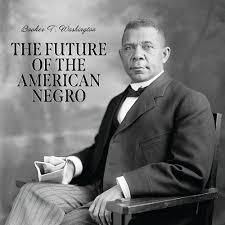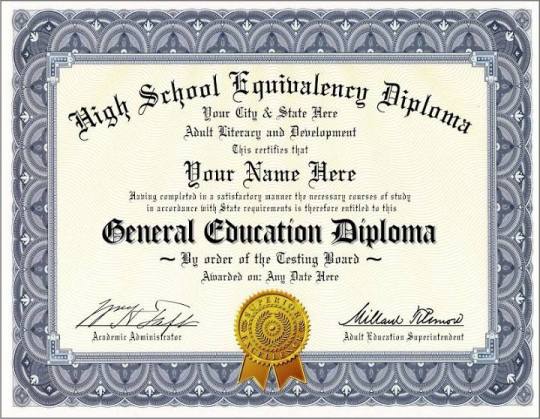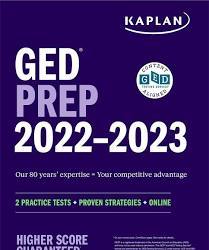#class c cdl jobs
Explore tagged Tumblr posts
Text
Find the Best Class C CDL Jobs Now!
Your next big opportunity is here! Our network of employers is hiring for Class C CDL jobs, offering stability and great pay. Don’t miss out—start driving with confidence and build a secure future. Join Elite HR Careers today and take charge of your career!

0 notes
Text

Run the plays part of me being a team Leader Joe Montana and An American Hero myself as Tom Brady I get to run plays that help society crazy job but I love doing the job it helps make society much better I love that I'm a super hero and own an Incubator on me being Batman and Superman a Super Hero is really about me building infrastructure for society that is my day job . Good Role model please model yourself after Barack Obama in this book please read this book and model yourself after Barack Obama and we will have a nation of young leaders .
Shedding light on Rikers Island Computer tablets program
Suggestions for Rykers Island tablet programs and NYS DOC tablet program for all buildings on Rikers Island including the adolescent population to help stop gang violence and giving the kids a chance to create a better future for themselves not the pipeline from the streets and back to jail over and over and again and over again , not kick that give them the option of going legit like crime is their for their choosing or they get pushed into it , then push them into legitimacy give them the option through the tablet programs on it to learn how to do research by looking up their case and podcast like how to find your dream job is in there on the tablet along with the radio they could listen to music , call their family and enjoy time on the phone from anywhere in their housing in the facility in the rec room playing board games or on their bed talking to their family and long term solitary confinement inmates should be able to get their tablets and video games handheld systems it is a much better time occupier and it will seriously decrease crime on Rikers Island by over 60 - 70 % if not 100 % percent total annihilation of crime on Rikers Island , you have the greatest substitute for drama and the correction officers getting robbed , slashed and even murdered on Rikers Island what you then have is a hub for learning an Island of learners , readers , researchers , growing and evolving human beings into more decent and civilized wealthy and intelligent men and women that go home and change the world and never return to prison and that is the ultimate goal , but look at the opportunity you have got a chance to turn Rikers to an liberal education and vocational education school a workforce training school you could learn to write resumes , job letters to corporate executives become a mechanic , engineer , electrician , gain your GED and trade skills and job search and job interview from jail and the Correction Officers are the people handing you my tablets they are giving you my tablets to get your life together and get the future you want they are running my program for you while you are in the cradle ( Jail ) and leaving the womb to become a better birthed person so wow that is great we call this the Rikers Island jail tablet and video games program for the inmates on Rikers Island in using all populations and buildings on Rikers Island C - 74 ARDC , C - 95 and all other buildings included from General population to protective custody to long term punitive segregation parts of the jail .
Vocational programs OSHA 10 - Instructional video on what to do on a construction site .
OSHA 30 - Instructional on what to do on a construction site , private office buildings and government buildings .
Auto mechanics Electrical Plumbing Carpentry CDL manual Building maintenance Taxi delivery Administrative assistant Typing Legal research Drivers manual
General education classes Basic mathematics English classes GED\ Tasc preparation Science Social studies U . S . History classes
Tablet program for Rikers Island Resume writing classes , cover letters also and Job interviewing simulation on their tablets also podcasts the inmates adult populations and adolescent population get to learn how to write cover letters , resumes and fill out Job applications and use simulation for practicing of Job interviews to better integrate into society with an earned Certificate of relief from all disabilities and prove their rehabilitation on programs they attended while inside of prison to better adjust to the outside world when released from prison and joining the work world in their resume letters and cover letters and job offer letters they will have to explain to employers that they are fully rehabilitated and a changed person that found something constructive to do with their mind and time while in prison .
DOC officially launches new tablet program for all people in custody Dec 13, 2022 — “These tablets will provide valuable and educational services and increase family engagement so people in custody can stay in touch with their families .
What can inmates do on tablets?
Tablets offer specialized content and services for inmates to use during their stay at correctional facilities (where available). The tablets allow your loved ones access to a suite of education and entertainment content, plus the ability to place phone calls, send messages, and get general on-site support.
Laws I put in place with the Mayor of New York City and the Governor of New York City through my incubator program , thank you .
Many states and localities also have their own equal opportunity laws that expand on federal protections related to hiring and interviewing . Here are few examples :
Ban the box laws : Many states have passed laws that prohibit employers from inquiring about an applicants criminal history on a job application or during the initial stages of the hiring process . ( The term " ban the box " refers to the recent campaign against applicants to mark a check box on the job application if they have a criminal record . )
Fair - chance hiring laws : Some states have enacted fair - chance hiring laws that require employers to give candidates the opportunity to explain their criminal history before making a hiring decision .
Salary history bans : Multiple states now have laws that prohibit employers from asking candidates about their salary history . The goal is to stop perpetuating pay gaps for workers who are underpaid .
Drug testing : Now that a number of states have legalized marijuana ( Thanks to me ) . New laws protect applicants from being discriminated against based on the lawful use of marijuana outside of work .

Why care
This looks like a job for the Peace Corps our soldiers in reserves of the Navy , Army and all other military forces and of course the United Nations and World Foode program .
It is issues like this and kids swimming in pools of dirty water in Brazil that make you care and want to something about it and develop programs and hopefully those countries follow suit .




















Eat good , I hope the best for Rafah and the men of power their do more than dress nice in a suit and treat their people like royalty . We call each other Kings and Queens in the streets of New York City we say peace King or peace Queen and not hey to that person starving or dying no that is a King or Queen to me and so should they be to you too , tell the city of Rafah I said hello and enjoy the food , thank you that is from me soon to be delivered to them and their city .





I sponsor it the drug and HIV medicine Cabenuva . I sponsor my incubator program and all hospitals on all 7 Continents of this world in every city , town and country even state capitals releasing the cure for cancer all cancers and to give free cancer screening and free cancer treatment for all the types of cancers and stages of cancer treatment to all people no matter their medical insurance coverage , Medicaid and , Medicare and all other insurances or lack thereof included fair treatment for all patients and clients . If I had HIV Aids I would take the medicine be like me and take your medicine so you could grow up healthy and strong like me all things is possible when you believe and have faith and now with Cabenuva we have that cure finally , thank you so much .
I'm the Incubator man nice ring to it , I like it . Being a Superhero is my day job and I love it wherever there is sorrow I'm there to help .
What is the purpose of incubator? An incubator is designed to provide a safe, controlled space for infants to live while their vital organs develop. Unlike a simple bassinet, an incubator provides an environment that can be adjusted to provide the ideal temperature as well as the perfect amount of oxygen, humidity, and light an enclosed apparatus providing a controlled environment for the care and protection of premature or unusually small babies an apparatus used to hatch eggs or grow microorganisms under controlled conditions.
What does incubator mean in business? An incubator is a facility designed to nurture and accelerate the growth of new businesses. It typically provides resources such as office space, access to mentors and investors, shared services, and other resources to help entrepreneurs launch their business. What are the two types of incubator?
There are basically two types of incubators available, forced-air and still-air incubators. Forced-air incubators have fans that provide internal air circulation. The capacity of these units may be very large. The still-air incubators are usually small without fans for air circulation Who needs an incubator? Babies who are born too early, before 37 weeks, can have problems such as low birth weight, irregular temperature, and unstable vital signs.
A baby incubator helps control their temperature. They will also be given high-calorie formula and will get the treatment they need for any other issues.
How do incubators make money?
Services provided by incubators include office space, administrative functions, education and mentorship, access to investors and capital, and idea generation. Incubators either charge a fee for their services or take an equity stake in the startup. The period of incubation can last from a few months to several years. Well bro I own my own hospital my own incubator on why I kept it to help and heal people .
I sponsor the release of a cancer treatment for all stages of cancer from stage one cancer to prevent that cancer from spreading to stage 4 cancer we still need the knockout cancer treatment for stage 4 cancer though and I'm watching to see what medical team and university come up with those drugs first that eliminate the cancer at that stage , a cure for stage 1 cancer to stage 4 cancer let us see who win that war a more important war to fight not with guns and knives and killing each other . A lot of people say they are cures for stuff like cancer and HIV AIDS like they gave me the cure for HIV / AIDS Cabenuva and the other drug Demivato to sponsor so they say I found the cure for HIV AIDS I don't have the disease myself but I sponsor it what it is those medical teams or inventors have nobody to sponsor their new drugs that help cure those diseases so I took them on and sponsor it now thank you Cabenuva and the Demivato drug eliminates HIV before spreading into AIDS but you have to take it as prescribed to become undetected for HIV they have my name on it now , I approve it my stamp of approval is on it now so yes it works so take your medication as prescribed so you grow up healthy and strong , I love the cause and yes I love my stamp all over those inventions now if their is a cure for all stages of cancer stage 1 to stage 4 cancer give it to the people that needs it please I sponsor it me and my incubator program my hospital sponsor your drug and I ask all hospitals all over the world to prescribe those medication and cure to all people regardless of their medical insurances or lack of medical insurance that is fair treatment for all people , thank you .
News update good luck to you in life , thank you for letting me help the people . I feel people shouldn't let me be the best Joyce Meyer student their is just my bragging rights they should compete with me on that and see who can be the better Joyce Meyer student their is she is the best isn't she . I love her work it changed my life I read it everyday I make time for it everyday so should you . She got a book on every subject or issues we may be going through and a better way to solve it the problems you are facing the books her books is my instructions and should be yours now on from now on now it is my manual my breath of life and should be yours from now on . She changed the way I think and live now and I'm challenging New Yorkers all New Yorkers to let's see who can apply the principles attitudes and actions and behaviors that Joyce Meyer suggest in her books go for it . I want and wish all New Yorkers will read her books and adjust her content into their lives to make New Yorkers a better place for all us to live in , thank you .
3 notes
·
View notes
Text
Seattle CDL Driving School
Seattle CDL Driving School: Your Gateway to a High-Demand Career
In the bustling Pacific Northwest, Seattle serves as a major hub for commerce, shipping, and logistics. As such, the demand for skilled commercial drivers remains consistently high. For individuals looking to tap into a reliable and well-paying industry, attending a Seattle CDL driving school can be the first major step toward a fulfilling career. Whether you're switching professions, entering the workforce for the first time, or seeking more job security, the training provided at a Seattle CDL driving school can open the door to multiple career paths and long-term employment options.
The Growing Importance of Commercial Drivers
Commercial truck drivers are the backbone of America’s economy. From food and medical supplies to construction materials and consumer goods, the movement of freight is essential for day-to-day life. The trucking industry is projected to continue growing, with the U.S. Bureau of Labor Statistics reporting steady job outlook and median pay that surpasses many entry-level positions in other fields. For Seattle residents, this presents an appealing opportunity. With the city’s proximity to major ports, industrial centers, and cross-state highways, there is a constant need for qualified CDL drivers to support both local and long-haul transportation needs.
Understanding CDL Licenses
Before delving into the benefits of a Seattle CDL driving school, it’s essential to understand what a CDL is. CDL stands for Commercial Driver’s License. This license is required to operate large or heavy vehicles such as tractor-trailers, tanker trucks, buses, and certain types of delivery vehicles. There are three main classes of CDLs:
Class A: Required to operate vehicles with a gross combination weight rating (GCWR) of 26,001 pounds or more, including a towed unit weighing over 10,000 pounds. This is typically the license for long-haul truckers.
Class B: Required for operating single vehicles with a GVWR of 26,001 pounds or more, or towing a vehicle weighing less than 10,000 pounds. This class covers many local delivery trucks and school buses.
Class C: Required for vehicles designed to transport 16 or more passengers or hazardous materials.
A Seattle CDL driving school prepares students for the written knowledge tests and behind-the-wheel road tests necessary for these licenses, often specializing in Class A and Class B training.
What to Expect at a Seattle CDL Driving School
A reputable Seattle CDL driving school offers a comprehensive curriculum that balances classroom instruction with practical hands-on training. Students can expect the following components during their course:
Classroom Education: This portion covers the theory and laws related to commercial driving. Topics include vehicle inspection protocols, safe driving practices, hours-of-service regulations, cargo handling, and defensive driving strategies. Students also prepare for the written permit exam during this phase.
Vehicle Familiarization: Students learn to perform pre-trip inspections, understand the mechanics of a commercial vehicle, and get familiar with shifting techniques for manual and automatic transmissions.
Driving Practice: Under professional supervision, students gain on-road experience. This includes navigating city streets, highways, parking lots, and truck yards. Skills like backing, turning, and maneuvering through tight spaces are emphasized.
Endorsement Training: Some Seattle CDL driving schools offer training for endorsements such as Hazmat (H), Tanker (N), Double/Triple Trailers (T), and Passenger (P), which can increase employment opportunities.
The duration of training varies, ranging from several weeks for full-time programs to several months for part-time or weekend classes, making it accessible for individuals balancing other responsibilities.
Benefits of Attending a Seattle CDL Driving School
Enrolling in a Seattle CDL driving school provides far more than just a license. It equips students with the skills and confidence to launch a professional driving career. Here are the key benefits:
Industry-Standard Instruction: CDL programs follow guidelines set by the Federal Motor Carrier Safety Administration (FMCSA), ensuring students receive standardized, compliant, and up-to-date education.
Safety and Risk Reduction: With Seattle’s dense urban environment and variable weather, knowing how to drive a commercial vehicle safely is paramount. Professional instruction reduces the risk of accidents and increases driver awareness.
Test Preparation: CDL schools thoroughly prepare students for both written and practical exams. This reduces the likelihood of retakes, saving time and money.
Job Readiness: Many Seattle CDL driving schools include career preparation in their curriculum. Students may receive resume assistance, interview coaching, and job search strategies to enter the workforce with confidence.
Increased Earning Potential: A CDL opens the door to various positions that offer competitive wages, benefits, and long-term job stability. In a region like Seattle, where logistics are integral to business operations, qualified drivers can command favorable compensation.
Career Paths After Graduation
Graduating from a Seattle CDL driving school can lead to several different career paths depending on the type of license obtained and personal preferences:
Long-Haul Truck Driver: These drivers cover long distances, often crossing state lines. It’s ideal for individuals who enjoy travel and independence.
Local Delivery Driver: These positions offer more predictable hours and routes, often allowing drivers to return home each day.
Bus Driver: Whether for public transit, school systems, or private charters, bus drivers require a Class B or C license with a passenger endorsement.
Hazmat or Tanker Driver: With additional endorsements, drivers can operate vehicles carrying hazardous materials or large liquid loads, which often come with higher pay due to the added responsibility.
Owner-Operator: Some drivers eventually purchase their own trucks and operate as independent contractors, offering more control over their schedule and earning potential.
Why Seattle Is a Strategic Location for CDL Training
Seattle offers a unique environment for commercial driving education. The city’s traffic patterns, terrain variations, and diverse weather conditions provide a real-world training ground for new drivers. Students gain valuable experience navigating urban congestion, steep hills, and wet roads—conditions that prepare them for any scenario they may encounter on the job.
Furthermore, Seattle’s strategic location near major ports, interstates like I-5 and I-90, and proximity to Canadian borders makes it a central point for regional and international freight movement. This high demand ensures continued opportunities for newly licensed drivers.
Conclusion
Attending a Seattle CDL driving school is more than a step toward licensure; it’s an investment in a stable and rewarding career. From in-depth instruction and real-world training to preparing for high-demand roles in transportation, a CDL education offers the tools and confidence necessary to thrive in the commercial driving industry. As Seattle continues to grow and evolve as a logistics and transportation hub, those who train in the city are uniquely positioned to take advantage of the abundant job opportunities that await on the road ahead.
1 note
·
View note
Text
Seattle CDL

Seattle CDL: Everything You Need to Know to Get on the Road
Seattle, a bustling port city known for its maritime industry, vibrant economy, and strategic position in the Pacific Northwest, is a prime location for commercial drivers. The demand for skilled professionals in the transportation and logistics industry is growing rapidly, especially as the region continues to expand its infrastructure and support trade both domestically and internationally. For those interested in pursuing a career in trucking or commercial transport, obtaining a Seattle CDL (Commercial Driver’s License) is a crucial step toward unlocking numerous job opportunities and financial stability.
Whether you're just getting started or considering a career switch, this guide will walk you through what a Seattle CDL entails, why it's important, what to expect during training and testing, and the long-term benefits of holding a CDL in Seattle.
What Is a Seattle CDL?
A Seattle CDL refers to a Commercial Driver’s License issued to drivers who meet the qualifications and testing standards set by the Washington State Department of Licensing (DOL). It allows individuals to operate large or heavy vehicles for commercial use, including tractor-trailers, buses, dump trucks, tankers, and more.
There are three main classes of CDL:
Class A: Permits operation of combination vehicles with a total weight of 26,001 pounds or more, including the trailer being over 10,000 pounds.
Class B: Allows drivers to operate single vehicles weighing 26,001 pounds or more, with a trailer under 10,000 pounds.
Class C: Required for vehicles designed to transport 16 or more passengers (including the driver) or those transporting hazardous materials (HAZMAT).
Seattle’s booming trade and transportation sectors make all three classes relevant, depending on the role you’re aiming for.
Why Pursue a CDL in Seattle?
Seattle's unique geography and economic landscape offer several compelling reasons to earn a CDL locally:
1. High Demand for Drivers
The Port of Seattle, SeaTac International Airport, and a growing number of distribution centers across King County require skilled drivers daily. E-commerce, retail, construction, and logistics companies all depend on timely delivery and transportation of goods and materials.
2. Diverse Driving Opportunities
From local delivery routes in Seattle's neighborhoods to long-haul trucking through Washington's mountain passes and beyond, CDL holders have a wide range of job options. Some may choose intrastate routes to avoid long periods away from home, while others may pursue cross-country opportunities.
3. Competitive Salaries and Benefits
With demand comes increased pay. Drivers with a Seattle CDL can expect competitive wages, signing bonuses, medical benefits, and sometimes even tuition reimbursement if they went through formal training programs.
4. Job Security
As supply chain operations grow in complexity and scope, CDL holders remain a backbone of the economy. Whether transporting produce from Eastern Washington, materials for Seattle’s construction sites, or consumer goods from the port, CDL jobs are among the most stable and recession-resistant.
What It Takes to Earn a Seattle CDL
Earning your Seattle CDL involves several steps, including eligibility, medical exams, written tests, hands-on training, and skills assessments. Here’s a breakdown of the journey:
1. Meet the Basic Requirements
Before you begin the process, you must meet certain prerequisites:
Be at least 18 years old to drive within Washington state (21 for interstate driving).
Hold a valid Washington State driver's license.
Have a clean driving record (a few minor infractions may be acceptable, but serious offenses like DUI can disqualify you).
2. Get a DOT Medical Exam
All applicants must pass a Department of Transportation (DOT) physical exam to ensure they are medically fit to drive a commercial vehicle. This includes checks for vision, hearing, cardiovascular health, and more.
3. Study for and Pass the Written Knowledge Tests
To get your Commercial Learner’s Permit (CLP), you'll need to pass a series of written exams covering:
General knowledge
Air brakes (if applicable)
Combination vehicles (for Class A)
Other endorsements such as tankers, doubles/triples, HAZMAT, or passenger vehicles
Study guides, practice tests, and online resources are widely available to help you prepare.
4. Complete CDL Training
While Washington doesn’t require formal CDL schooling for all applicants, enrolling in a recognized CDL training program in or around Seattle provides hands-on instruction, access to vehicles, and professional guidance. It can significantly improve your chances of passing the road test and securing employment.
Training generally covers:
Pre-trip inspections
Vehicle control and maneuvering
On-the-road driving
Safety protocols
Logbook management and regulatory compliance
5. Take and Pass the Skills Test
Once you've practiced with your CLP (you must hold it for at least 14 days), you’ll take the CDL skills test, which includes:
Pre-trip inspection
Basic control skills (e.g., backing up, turning, parking)
On-road driving with an examiner
Passing this test earns you your Seattle CDL.
Endorsements and Restrictions
A CDL can be customized based on the types of vehicles you wish to operate. Common endorsements include:
N: Tank vehicles
H: Hazardous materials
P: Passenger vehicles
S: School buses
T: Double/triple trailers
Each endorsement typically requires additional testing. Likewise, restrictions may be placed on your license based on your vehicle type, transmission, or lack of air brake certification.
Maintaining Your Seattle CDL
Once you’ve earned your CDL, it’s important to stay in compliance with state and federal regulations.
Medical certification must be kept up to date.
Renew your CDL before it expires.
Avoid violations or safety infractions that can lead to license suspension or disqualification.
Complete any required continuing education if your employer or endorsements demand it.
Life After Getting Your Seattle CDL
Once you’ve secured your CDL, the road ahead is full of opportunities. You can explore work in:
Long-haul trucking across the U.S.
Local delivery for food and beverage companies
Passenger transport such as buses or shuttles
Freight and logistics companies with Seattle terminals
Specialized roles like HAZMAT or oversized load transport
Many CDL holders in Seattle eventually move up to become fleet managers, owner-operators, or start their own logistics business. The license is more than just a pass to drive—it’s a stepping stone into a full-fledged career.
Conclusion: Why Seattle CDL Opens the Door to a Strong Future
Obtaining a Seattle CDL is more than a legal requirement—it’s an investment in a high-demand, high-value profession. With its thriving economy, proximity to major ports, and growing infrastructure, Seattle offers commercial drivers long-term opportunities, job security, and room for growth.
For anyone considering a stable career that offers freedom, mobility, and competitive pay, the path to a Seattle CDL is well worth the drive.
1 note
·
View note
Text
Seattle CDL Driving School

Seattle CDL Driving School: A Roadmap to Your Next Career Move If you're feeling the pull to start something new—maybe a career that offers stability, independence, and the chance to explore the open road—then becoming a commercial driver might just be the fresh start you’re looking for. And it all begins at a Seattle CDL driving school. Seattle isn’t just a city of coffee shops and tech startups. It’s also a powerful hub for trade, freight, and transportation. With goods constantly flowing in and out of the Port of Seattle, and companies relying on dependable shipping routes across Washington and beyond, there’s a growing demand for skilled commercial drivers. And that demand starts with training. Attending a CDL driving school in Seattle doesn’t just teach you how to drive a truck—it equips you with the skills, knowledge, and confidence to launch a lasting, well-paying career.
What Is a CDL, and Why Does It Matter? A CDL, or Commercial Driver’s License, is required to operate large or specialized vehicles like tractor-trailers, buses, dump trucks, tankers, and other commercial transport vehicles. This isn’t your average license—it comes with a higher level of responsibility, training, and regulation. To earn a CDL, you’ll need to complete classroom instruction, pass a written test, and successfully perform a hands-on driving exam. A Seattle CDL driving school helps you do all that and more, with expert guidance tailored to the unique challenges and conditions found in the Pacific Northwest.
What You’ll Learn at a Seattle CDL Driving School Seattle’s roadways are a mix of urban complexity, mountain passes, rainy weather, and high-volume freight routes. It’s not the kind of place you want to learn the ropes without a solid foundation. That’s where CDL training steps in. Classroom Instruction Before you ever set foot in a big rig, you’ll learn the theory behind safe, legal, and efficient commercial driving. Some of the topics covered include: • Department of Transportation (DOT) rules and regulations • How to handle cargo, including load securement and weight limits • Understanding air brake systems • Vehicle inspection and maintenance • Safety procedures and accident prevention • Route planning and map reading • How to manage fatigue and stay compliant with hours-of-service rules This classroom time lays the groundwork for your road skills and helps you pass the written knowledge test required to get your CDL learner’s permit. Behind-the-Wheel Training Once you’ve got your permit, it’s time to hit the road—literally. You’ll get hands-on training in a real commercial vehicle with guidance from experienced instructors. You’ll learn how to: • Perform a complete pre-trip inspection • Start, stop, shift, and turn safely • Practice defensive driving techniques • Navigate tight spaces, busy intersections, and highway traffic • Master parking and backing maneuvers like parallel parking and alley docking • Drive in challenging conditions, including rain and elevation changes Since Seattle’s roads can shift quickly from smooth city lanes to winding hillsides, your training will prepare you for real-world scenarios you’ll actually face on the job.
Types of CDL Licenses You Can Train For At a Seattle CDL driving school, you can train for the specific license that matches your career goals. Here are the main types: • Class A CDL – Allows you to operate combination vehicles (like tractor-trailers) with a gross weight over 26,001 pounds and a trailer over 10,000 pounds. This is the most common type for long-haul and regional drivers. • Class B CDL – For single vehicles over 26,001 pounds or towing under 10,000 pounds. Often used for dump trucks, delivery trucks, and city buses. • Class C CDL – Needed for transporting 16+ passengers or hazardous materials that require placards. Your CDL school will help you understand which license best fits your interests, and prepare you accordingly.
Why Choose a Seattle CDL Driving School? Sure, you could technically get a CDL without attending a formal school—but in reality, that’s a risky and often expensive road. A Seattle CDL driving school gives you the structure, equipment, and instruction to get licensed faster and safer, with more career readiness.
Learn from Instructors Who Know Seattle Roads Seattle traffic can be a beast—from rainy days on I-5 to steep climbs heading east toward the Cascades. Local instructors understand these challenges and teach you how to navigate them confidently.
Train with Real Equipment Hands-on experience matters. CDL schools provide access to the types of vehicles you'll actually drive in your career—equipped with either manual or automatic transmissions, depending on your goals.
Save Time and Avoid Costly Mistakes With step-by-step guidance, you’ll avoid the common pitfalls of trying to go it alone—like failing the test multiple times or missing out on key endorsements that could boost your earning potential.
Build Long-Term Skills, Not Just a License The best CDL schools in Seattle focus on making you a safe, skilled, and employable driver—not just someone who can pass a test. That means learning good habits, understanding legal requirements, and developing the soft skills (like communication and professionalism) that help you succeed long-term.
What to Expect in the CDL Process Here’s a simplified look at the journey from student to licensed driver:
DOT Physical Exam Make sure you meet health standards, including vision, hearing, and medical fitness.
Pass the Knowledge Test and Get Your CDL Learner’s Permit (CLP) This test includes general knowledge, air brakes, and combination vehicle sections for Class A.
Complete CDL School Training Includes classroom work, hands-on driving, and practice exams.
Pass the Skills Test A state-administered test that includes a vehicle inspection, basic maneuvers, and an on-road driving test.
Receive Your CDL Once you pass, you’ll be issued your CDL and can begin applying for commercial driving jobs. Some students also pursue additional endorsements during school, such as: • HazMat (H) • Tanker (N) • Passenger (P) • School Bus (S) • Double/Triple Trailers (T) These endorsements make you more versatile and open the door to a wider range of driving opportunities.
Why Now Is the Right Time There’s never been a better time to pursue commercial driving. With the growing need for goods transportation across the country and a generational shift as older drivers retire, companies are actively seeking new talent. Seattle is uniquely positioned as a distribution hub for international trade, especially with its proximity to Canada and the Pacific Ocean. That means more demand, more routes, and more job opportunities for licensed commercial drivers trained right here in the city.
Conclusion: Start Strong with a Seattle CDL Driving School If you’re looking for a career that gives you freedom, good pay, and the satisfaction of mastering a valuable skill, attending a Seattle CDL driving school is the perfect place to begin. You’ll get real-world experience in a challenging but supportive environment, tailored to the unique demands of driving in the Pacific Northwest. With the right training, the road ahead isn’t just open—it’s full of possibility. You don’t need a four-year degree to earn a steady income or feel proud of what you do. You just need a license, a solid foundation, and a willingness to learn. Seattle’s roads are calling. Are you ready to answer?
cdl #trucking #truckdriver #trucker #cdldriver #trucks #truckerlife #truckinglife #truck #freight #truckdrivers #bigrig #driver #cdllife #freightliner #washington #pnw #seattle #usa #newyork #washingtonstate #california #washingtondc
1 note
·
View note
Text
CDL Driving School Seattle

CDL Driving School Seattle: Your Path to a New Career Behind the Wheel Seattle may be known for its coffee, tech innovations, and iconic skyline—but it’s also a key player in the movement of goods and services throughout the Pacific Northwest. From the bustling Port of Seattle to the vast web of highways that stretch across Washington state and beyond, commercial drivers are essential to keeping this region moving. If you’re thinking about a fresh start, a stable career, or simply exploring new opportunities, attending a CDL driving school in Seattle could be your first and smartest step. Whether you’re brand new to trucking or looking to upgrade your current license, CDL training offers a fast, focused path to a high-demand profession.
What Is a CDL Driving School? A CDL driving school is a specialized training program designed to prepare students for earning their Commercial Driver’s License (CDL). This license is required for operating large or specialized vehicles such as tractor-trailers, buses, dump trucks, tankers, or vehicles carrying hazardous materials. These programs are structured to provide two essential elements of training: classroom education and behind-the-wheel experience. Together, these prepare students not only to pass the required tests but also to step confidently into the workforce with practical, real-world skills. In Seattle, the unique geography—ranging from city streets to mountain passes and coastal highways—makes professional training even more critical. Drivers here must be prepared for varying traffic patterns, weather conditions, and road environments, all of which a CDL school will help you navigate safely.
What You’ll Learn at a CDL Driving School in Seattle Training at a CDL driving school in Seattle includes a blend of theory and practice. You’ll not only learn how to handle a commercial vehicle but also how to do so responsibly and in compliance with federal and state regulations. Classroom Instruction The classroom portion of training lays the foundation for your driving career. You’ll cover topics such as: • Department of Transportation (DOT) safety regulations • Vehicle systems and inspections • Air brake systems and components • Weight distribution, cargo securement, and load balancing • Driver fatigue management and hours-of-service regulations • Reading maps, planning routes, and understanding traffic laws • How to handle emergency situations and road hazards Seattle-based training often includes localized knowledge—such as how to drive safely during rainy seasons or how to manage steep grades and mountain routes found along I-90 or Snoqualmie Pass. Behind-the-Wheel Training After the classroom, you’ll transition to hands-on training in a real commercial vehicle. This phase includes: • Pre-trip vehicle inspections • Basic control skills (starting, stopping, turning, shifting gears) • Maneuvering in traffic and tight spaces • Backing exercises (straight line, offset, parallel, and alley dock) • Road driving practice on highways, local roads, and city streets Seattle’s mix of urban congestion and open stretches makes it an ideal environment for diverse, real-world driving practice. You'll experience situations that help you become more adaptable, confident, and safe.
Types of CDL Licenses Offered Before attending a CDL driving school in Seattle, it’s important to know which type of license fits your goals. There are three main classes of CDL licenses: • Class A: This license allows you to drive combination vehicles with a total weight of over 26,001 pounds, where the trailer exceeds 10,000 pounds. Class A is the most versatile and is required for long-haul trucking and many regional driving jobs. • Class B: For operating single vehicles over 26,001 pounds or vehicles towing under 10,000 pounds. Often used for buses, delivery trucks, or dump trucks. • Class C: Required for vehicles designed to transport 16+ passengers or hazardous materials in quantities that require placarding. Each license has its own specific training requirements, and CDL schools typically offer programs tailored to the license class you’re pursuing.
Benefits of Attending a CDL Driving School in Seattle Choosing to attend a CDL driving school in Seattle comes with several advantages—not just for passing the test, but for building a lasting and successful career.
Expert Guidance in a Complex Environment Seattle’s unique driving conditions can be challenging, even for experienced drivers. A local CDL school prepares you for the realities of regional terrain, weather patterns, and traffic flows. From navigating rainy freeways to managing elevation changes, you’ll get the kind of practice that makes you road-ready.
Hands-On Experience with Real Equipment You’ll train with real commercial vehicles, giving you the tactile experience of handling heavy machinery before you're out on your own. Many schools also offer training on both manual and automatic transmissions so you’re not limited in future job opportunities.
Focused and Efficient Career Training Most CDL programs in Seattle can be completed in a matter of weeks—meaning you can transition to a new career without spending years in school. Full-time programs typically take 3–8 weeks, while part-time options may take longer to accommodate busy schedules.
Preparation for Endorsements Endorsements such as HazMat, Tanker, or Passenger can significantly increase your job options and income potential. CDL driving schools can help you prepare for these specialized exams alongside your core training.
What to Expect from the CDL Licensing Process Attending a CDL driving school is just one part of the journey. Here’s a basic outline of what to expect as you work toward your license:
DOT Physical Exam – To ensure you meet health and vision standards required for safe driving.
CDL Learner’s Permit (CLP) – Issued after passing a written knowledge test. You'll need this permit before you can begin hands-on vehicle training.
CDL Training Program – Enroll in and complete a CDL driving school course, including classroom and driving hours.
Skills Test – This includes a pre-trip inspection, basic controls test, and on-road driving test.
CDL Issuance – Upon passing all components, your official Commercial Driver’s License is issued by the Washington State Department of Licensing. Many schools also provide simulated test environments and practice exams to boost your confidence and reduce anxiety on testing day.
A City on the Move Needs Skilled Drivers Seattle is home to a growing economy that relies heavily on transportation. From port activity and warehouse logistics to food distribution and construction, the demand for skilled commercial drivers is higher than ever. The city’s strategic position as a gateway to Canada and the Pacific Rim makes it a hub for national and international freight movement. That means more trucks, more routes, and more need for trained drivers who can safely handle the responsibility. A CDL driving school in Seattle doesn’t just teach you how to drive—it prepares you for a steady, essential, and respected role in one of the city’s most important industries.
Conclusion: Ready for the Road Ahead? Whether you’re starting fresh or shifting gears in your career, enrolling in a CDL driving school in Seattle is a powerful step toward a stable, rewarding future. With comprehensive training, hands-on experience, and a clear path to licensure, you’ll be equipped to take on the challenges—and the opportunities—of commercial driving. Seattle’s roads are waiting, and so are the companies, communities, and industries that depend on reliable, skilled drivers. With the right training and mindset, you can be part of that vital network—moving not just freight, but your own life forward.
cdl #trucking #truckdriver #trucker #cdldriver #trucks #truckerlife #truckinglife #truck #freight #truckdrivers #bigrig #driver #cdllife #freightliner #washington #pnw #seattle #usa #newyork #washingtonstate #california #washingtondc
1 note
·
View note
Text
CDL Seattle

CDL Seattle: Your Path to a Career Behind the Wheel In a bustling and ever-growing city like Seattle, opportunity moves fast—and so do the goods, materials, and products that power its economy. From the docks of the Puget Sound to the warehouses of Kent, and along the sprawling highways that link Washington to the rest of the country, commercial drivers play a vital role in keeping things moving. If you’re considering a new career or looking to upgrade your skillset, training for a Commercial Driver’s License (CDL) in Seattle could be the launchpad you need. But what does the journey to becoming a professional driver look like in Seattle? What should you expect from CDL training in this unique Pacific Northwest city? Let’s dive into the world of CDL Seattle and explore how this certification can open doors to new opportunities and a stable, rewarding career.
Why Choose a CDL Career? Before diving into the specifics of CDL Seattle, it’s important to understand why so many people are pursuing this path. Commercial driving isn't just about sitting behind the wheel—it’s a skilled profession that’s increasingly in demand. With the ongoing growth of e-commerce, retail distribution, and freight logistics, trained CDL drivers are needed now more than ever. Some of the top reasons people turn to a CDL career include: • Job Stability: The transportation industry is the backbone of the U.S. economy. As long as people and businesses need goods, trained drivers will have opportunities. • Good Pay: Entry-level drivers often earn competitive wages, with potential for increases based on experience and endorsements. • Freedom on the Road: Many drivers appreciate the independence that comes with a career on the road—away from cubicles, strict office schedules, and repetitive routines. • Short Training Period: Compared to traditional four-year degrees, CDL training can often be completed in a matter of weeks. With that in mind, it’s easy to see why interest in CDL Seattle programs is growing rapidly.
What Is CDL Training? A Commercial Driver’s License (CDL) is required to operate large or heavy vehicles, such as semi-trucks, box trucks, passenger buses, and certain construction equipment. In the United States, CDL training typically includes both classroom instruction and hands-on practice. There are three main CDL classifications: • Class A: This license allows drivers to operate vehicles with a trailer over 10,000 pounds. It’s typically used for tractor-trailers, flatbeds, and long-haul trucking. • Class B: This is for operating a single vehicle that weighs more than 26,000 pounds, like school buses, dump trucks, and delivery trucks. • Class C: This covers smaller vehicles designed to transport 16 or more passengers or hazardous materials. Each class requires different levels of training and testing, so understanding your career goals will help determine the right path in CDL Seattle programs.
What to Expect from CDL Seattle Training Seattle offers a unique backdrop for CDL training. The city’s combination of dense urban areas, steep grades, and frequent rain makes it a practical training ground for new drivers. If you can handle a rig in Seattle, you can handle it anywhere. Here’s what a typical training experience may involve:
Classroom Instruction You’ll start with classroom sessions that cover the rules of the road, safety procedures, federal and state regulations, hours-of-service rules, and proper vehicle maintenance. This portion is crucial for passing the written knowledge test required by the Department of Licensing (DOL).
Behind-the-Wheel Training After gaining foundational knowledge, students move on to driving practice. This is where you’ll learn to: • Perform pre-trip inspections • Shift gears (manual or automatic) • Maneuver in tight spaces • Parallel park and back up • Navigate city traffic and highways • Drive in adverse weather conditions Training routes often include both closed-course practice and public road driving to build real-world skills.
CDL Permit and Testing Before earning a full CDL, students must first pass the CDL permit test. Once you hold your permit and have completed your training, you'll take a skills test consisting of: • A pre-trip inspection test • A basic vehicle control test • A road test on actual streets and highways In Seattle, this test is administered through approved testing sites, and requirements may vary slightly from county to county.
Seattle’s Driving Challenges (and Why They're a Benefit) Seattle isn’t just another training location—it’s a place that prepares drivers for real-world conditions. Here are a few reasons why CDL Seattle training stands out:
Hilly Terrain Seattle’s famously steep hills will test your braking and clutch control like few other cities. You’ll quickly learn the importance of managing weight and momentum—skills that are essential for long-term driving success.
Rain and Wet Roads With frequent rain and slick conditions, Seattle offers a practical environment for mastering how to handle a large vehicle in inclement weather. This kind of experience can make you a more confident and cautious driver when it matters most.
Urban and Suburban Mix Seattle’s metro area blends city streets with wide-open suburban routes. You'll learn how to deal with dense traffic, tight delivery points, construction zones, and open highways—all in one region.
Earning Endorsements in Seattle In addition to earning a base CDL, many Seattle drivers choose to pursue endorsements to expand their job options. These endorsements include: • T (Double/Triple Trailers) • P (Passenger Vehicles) • H (Hazardous Materials) • N (Tank Vehicles) • X (Combination of Tank and Hazmat) Each endorsement requires additional testing and background checks, especially for hazmat certifications. Training schools in Seattle often help prepare students for these endorsements if they’re part of your career plan.
Financial Investment and Support While CDL training is generally affordable compared to other vocational programs, it still requires a financial investment. Some students choose to pay out of pocket, while others explore financial aid options such as grants, loans, or workforce development programs. In Seattle, there are often local and state-funded workforce initiatives that support those looking to enter high-demand trades—including transportation. These can be especially helpful for veterans, unemployed individuals, or people looking to re-skill after a career change.
The Job Outlook for CDL Drivers in Seattle Seattle’s location near major shipping ports and distribution centers makes it a hotspot for transportation jobs. With the city’s proximity to Canada, access to I-5, and a growing population, logistics companies need dependable, skilled drivers more than ever. Drivers can find opportunities across various sectors: • Local delivery routes (home every night) • Regional and over-the-road (OTR) hauling • Construction material transport • Refrigerated goods and food delivery • Passenger and shuttle services Training in Seattle equips you to confidently take on any of these roles—and with the growing demand, CDL holders often have a wide array of options once certified.
Life After Training: Staying Sharp on the Road Earning your CDL is just the beginning. Good drivers are always learning, adapting, and improving. In Seattle, continuing education and safety refresher courses are common among professionals who want to stay up to date with changes in regulations and best practices. It’s also important to maintain a clean driving record, communicate clearly with dispatchers and clients, and keep your health in check—especially with long hours behind the wheel. The most successful drivers treat this career as a craft, with pride and professionalism.
Conclusion: Start Your CDL Journey in Seattle CDL Seattle programs offer more than just a path to a new license—they offer a gateway to a life-changing career. Whether you’re starting fresh, changing paths, or looking to secure a future with strong earning potential, commercial driving is a respected, essential profession. Training in a city like Seattle means you’re getting real-world experience in an environment that challenges and sharpens your skills. From its steep hills to its bustling highways, Seattle prepares you for success behind the wheel—wherever the road may lead. So if you're ready to move forward, commit to the journey. The road is wide open—and it’s waiting for drivers like you.
cdl #trucking #truckdriver #trucker #cdldriver #trucks #truckerlife #truckinglife #truck #freight #truckdrivers #bigrig #driver #cdllife #freightliner #washington #pnw #seattle #usa #newyork #washingtonstate #california #washingtondc
1 note
·
View note
Text
What is CDL Training? A Complete Guide for Beginners
If you're considering a career as a commercial truck driver, you've likely come across the term CDL training. But what exactly is it, and why is it so important? In this guide, we'll break down everything you need to know about CDL training, from what it entails to how you can get started with a trusted provider like CDL of America at Davie Travel Center.
What is a CDL?
A Commercial Driver's License (CDL) is a special license required to operate large vehicles like semi-trucks, buses, and certain construction vehicles. This license ensures that drivers have the skills and knowledge necessary to safely operate these heavy-duty vehicles on public roads.
There are three main classes of CDLs:
Class A – Allows you to operate combination vehicles with a gross vehicle weight rating (GVWR) of 26,001 lbs or more, including tractor-trailers and tanker trucks.
Class B – Covers single vehicles with a GVWR of 26,001 lbs or more, such as buses and delivery trucks.
Class C – Needed for vehicles that transport 16+ passengers or hazardous materials.
What is CDL Training?
CDL training is a structured program designed to prepare you for the CDL exam and teach you the practical skills needed to drive a commercial vehicle. A good training program will cover:
Classroom Instruction: Learn about road safety, federal regulations, and vehicle mechanics.
Hands-On Training: Get behind the wheel and practice real-world driving scenarios.
Pre-Trip Inspection: Understand how to check a truck’s safety before hitting the road.
Maneuvering Techniques: Master backing, turning, and parking large vehicles.
CDL Exam Preparation: Learn what to expect on the written and skills test.
Why is CDL Training Important?
Getting professional CDL training is the fastest and safest way to start a trucking career. Here’s why:
Better Job Opportunities – Many trucking companies require formal training from a reputable school.
Higher Pay – Trained drivers often earn more than those who try to get their CDL on their own.
Road Safety – CDL training ensures you and others stay safe while driving big rigs.
Hands-On Experience – You’ll get real-world practice before operating a truck alone.
How Long Does CDL Training Take?
The length of training varies by program, but most CDL training courses last between 3 to 8 weeks. Some schools offer accelerated programs, while others provide more extensive training for specialized driving skills.
How Much Does CDL Training Cost?
CDL training costs range from $3,000 to $8,000, depending on the school and program. However, many companies offer tuition reimbursement or sponsored training, allowing you to start your career with little to no upfront cost.
How to Choose the Best CDL Training School?
Not all CDL schools are created equal! When choosing a training provider, consider:
✅ Accreditation – Make sure the school is certified by the FMCSA (Federal Motor Carrier Safety Administration). ✅ Experienced Instructors – Look for schools with seasoned trucking professionals as trainers. ✅ Job Placement Assistance – Some schools partner with trucking companies to help you land a job after training. ✅ Flexible Schedules – If you have a busy lifestyle, check for part-time or evening classes. ✅ Modern Training Equipment – Training with newer trucks and technology gives you a better learning experience.
Why Choose CDL of America at Davie Travel Center?
If you're in Davie, Florida, and looking for the best CDL training, look no further than CDL of America at Davie Travel Center. They provide:
🚛 Top-Tier Training Programs – Their courses cover everything from basic driving to advanced techniques. 📜 FMCSA-Approved Training – Ensuring you get the best education and meet all legal requirements. 💼 Job Placement Assistance – Helping graduates secure trucking jobs right after certification. 💰 Affordable Tuition & Financial Aid – Various options to make training accessible to everyone. 🛣️ Real-World Driving Experience – Hands-on training with industry-standard trucks.
Get Started Today!
A career in trucking can be rewarding, flexible, and financially stable. If you're ready to take the first step, enroll in CDL training at CDL of America in Davie Travel Center today.
0 notes
Text
best cdl license
Obtaining a Commercial Driver’s License (CDL) is a pivotal step for anyone aspiring to drive commercial vehicles. A comprehensive CDL license guide is essential for ensuring that aspiring drivers not only pass the exams but also excel in their future driving careers. Here are the reasons why a well-crafted CDL guide is indispensable. First and foremost, a superior CDL guide covers all necessary topics, ensuring candidates are well-prepared for both knowledge and skills tests. From understanding different classes of CDLs, including Class A, B, and C licenses, to nuances of endorsements for additional vehicle types, an effective guide equips drivers with critical information. Furthermore, it helps navigate the complexities of federal and state regulations, making sure that aspiring drivers comply with all legal requirements before hitting the road. Moreover, a stellar CDL guide incorporates practice tests and real-life scenarios that enhance learning. By including sample questions from the actual written test, candidates can familiarize themselves with the types of questions they will face. Additionally, scenarios that involve handling emergency situations or understanding vehicle maintenance can build a driver’s confidence and preparedness, vital for safety on the road. Additionally, an exceptional CDL guide provides insights into the job market and industry trends, which is crucial for future career success. It can outline various trucking companies, salary expectations, and long-term career advancement opportunities. This knowledge empowers candidates to make informed decisions about their careers in commercial driving. In conclusion, a top-notch CDL license guide does more than just prepare candidates for tests; it sets them up for successful, safe careers in commercial driving. Investing time in finding the best guide will prove invaluable, ensuring that future drivers are equipped with the knowledge, skills, and confidence they need to thrive in the industry.
0 notes
Text
Navigating the Path to CDL Success: Tips and Resources for Aspiring Drivers
The trucking industry plays a vital role in the U.S. economy, transporting goods across vast distances to keep businesses running smoothly. If you’ve ever considered entering this field, obtaining a Commercial Driver’s License (CDL) is the first step toward an exciting and stable career. However, the process of becoming a commercial driver involves several steps, including thorough training, testing, and sometimes, ongoing education.
Here's a guide to walk you through the essential steps and offer valuable tips and resources to help you navigate the path to CDL success.
1. Understand the CDL Requirements
Before embarking on your CDL journey, it's important to familiarize yourself with the requirements specific to your state and the class of CDL you're pursuing. There are three primary classes of CDL in the U.S.: Class A, Class B, and Class C. Each class corresponds to the type of vehicle you'll be operating.
Class A: For combination vehicles with a gross combined weight rating (GCWR) of 26,001 lbs or more, including vehicles that tow a trailer over 10,000 lbs. This is the most common CDL for long-haul trucking.
Class B: For single vehicles weighing 26,001 lbs or more, or towing a trailer under 10,000 lbs.
Class C: For smaller vehicles that carry 16 or more passengers or hazardous materials.
2. Choose the Right CDL Training Program
One of the most important decisions you’ll make on your path to obtaining a CDL is selecting the right training program. A good CDL training program provides the foundational knowledge and hands-on skills you'll need to succeed.
Florida, for example, offers a wide range of options for aspiring truck drivers. You can find training in cities like Fort Myers, Clewiston, and Cape Coral, where reputable CDL training facilities provide both classroom and behind-the-wheel instruction.
Here are some things to consider when choosing a training program:
Accreditation: Make sure that the program is accredited and meets the requirements set by the Department of Transportation (DOT) and state regulations. Accredited programs ensure that you receive proper training that will be recognized by employers.
Curriculum: A solid training program should cover both the theoretical and practical aspects of driving. You’ll need to learn about road safety, vehicle operation, and regulations, as well as hands-on driving skills. Many CDL training companies in Fort Myers offer both classroom instruction and in-vehicle training to give you a well-rounded education.
Location: Look for programs that fit your schedule and are conveniently located. Many training companies offer weekend classes, which is especially useful for those with other obligations.
Cost: Be sure to research the cost of the program and explore financing options. Some employers may offer private financing or even tuition reimbursement once you’re hired, so inquire about potential job placements after graduation.
3. Prepare for the CDL Permit Test
Once you’ve enrolled in a CDL training program, your next task is passing the CDL permit test. This test evaluates your knowledge of road signs, traffic laws, and safe driving practices. While it may seem intimidating, there are plenty of resources available to help you succeed. Many CDL training providers in Florida offer test preparation, including practice exams and study guides.
Here are some additional tips for preparing for the permit test:
Study the CDL manual: The manual provides all the information you need to know for the test. Spend time reading through it and make notes of the key topics.
Take practice tests: Use online resources or take advantage of practice exams offered by your CDL training facility to test your knowledge.
Study with a partner: If possible, study with a fellow student or a CDL coach who can help quiz you and reinforce important concepts.
4. Get Hands-On Experience
While classroom instruction is important, real-world driving experience is what will truly prepare you to operate a commercial vehicle. Many CDL training companies in Fort Myers offer behind-the-wheel training with experienced instructors who will guide you through the process.
Here are some things to keep in mind during your hands-on training:
Listen to your instructors: Experienced trainers will guide you through driving drills and real-time problem-solving. Pay attention to their advice on maneuvering large vehicles, especially when it comes to backing up, turning, and parking.
Practice frequently: The more time you spend behind the wheel, the more comfortable and proficient you’ll become. Be sure to make the most of every driving session.
Ask questions: Don’t hesitate to ask your instructor for clarification if you don’t understand something. Whether it's about the Class A CDL or CDL B classes in Florida, make sure you’re confident before taking the test.
5. Pass the Road Test
The road test is the final step before obtaining your CDL. During the test, you'll be required to demonstrate your ability to safely operate a commercial vehicle. This includes performing basic maneuvers like parking, turning, and backing up, as well as demonstrating your knowledge of the vehicle and its safety equipment.
To prepare for your road test:
Rehearse common maneuvers: Spend plenty of time practicing parking, turning, and backing up with your instructor or a CDL coach.
Check your vehicle: Before the test, inspect your vehicle for any issues. A pre-trip inspection is a key component of the road test, so make sure everything is in working order.
Stay calm: Nerves are natural, but focus on staying calm and composed. If you make a mistake, don’t panic. Keep your focus on completing the test safely and correctly.
6. Explore Career Opportunities
Once you’ve obtained your CDL, the next step is to start your career. The trucking industry offers a variety of job opportunities, ranging from local deliveries to long-haul trucking. Some drivers choose to work for large companies, while others opt for independent contracting. If you want to take your skills to the next level, consider hiring a CDL personal trainer to enhance your skills and prepare for more advanced roles.
Start Your CDL Journey with SunState CDL
Ready to start your CDL journey? SunState CDL offers expert CDL training and coaching in Florida with experienced instructors and hands-on practice to help you succeed. Whether you’re pursuing a Class A, or Class B, they provide flexible schedules and the resources you need to launch a successful trucking career. Contact them today!
About the Author
John Doe is an experienced transportation professional with over 10 years in the trucking industry. He is passionate about helping aspiring drivers achieve success through quality CDL training and education.
0 notes
Text
10 Tips for semi-truck drivers obtaining their cdl license

10 Tips for semi-truck drivers obtaining their cdl license
Are you looking at obtaining your CDL? Be prepared that it is not a job for everyone. It requires lots of dedication, education, and knowledge about the trucking industry. Here are 10 important things to consider for every future semi truck driver that is looking to obtain their CDL.
What are the Different Types of CDL Licenses
Before you begin this process, it is critical that you understand the various types of CDL licenses available. The three main types are:
Class A: This license allows you to operate any combination of vehicles with a gross combination weight rating (GCWR) of 26,001 pounds or more, provided the towed vehicle is heavier than 10,000 pounds.
Class B: With this license, you can operate a single vehicle with a GCWR of 26,001 pounds or more, or any such vehicle towing a vehicle not heavier than 10,000 pounds.
Class C: This license is for operating vehicles that transport 16 or more passengers or hazardous materials.
Understanding these types of CDL licenses you need will help you focus your efforts on which license you should obtain.
Fulfill the Essential Criteria
To get a CDL, you need to meet a few basic requirements:
Age: You must be a minimum of 18 years old for intrastate driving and 21 for interstate driving.
Health: You must successfully complete a Department of Transportation (DOT) physical examination to confirm your fitness to operate a commercial vehicle.
Residency: You must provide evidence of citizenship or lawful permanent residency, such as a Social Security card or birth certificate.
These three items are a must when obtaining your CDL.
Prepare for the Written Test
Taking the written exam is required when getting your CDL. The exam includes sections on general knowledge of the truck, air brakes, and truck/trailers. You can find study resources and practice exams on the internet or from various CDL training courses. Make sure to allocate enough time to review these materials thoroughly to improve your likelihood of passing on your initial attempt.
Choose the Right CDL Training Program
There are tons of CDL schools in most states. You should prioritize schools that have a proven track record of high pass rates, knowledgeable instructors that includes both classroom instruction and practical driving experience. Having an accredited program is often favored by trucking companies as they offer a stronger foundation for your career.
Learn the Pre-Trip Inspection
A very important aspect of the CDL skills test is the pre-trip inspection, which requires examining the truck to guarantee its safety for the road. It is essential to inspect the engine compartment, cab, trailer, as well as different systems such as brakes and lights. Practice of this inspection will boost your confidence when performing it on the exam day. Do not skip this as it can be the most important step in obtaining your CDL and often will cause you to fail the exam.
Enhance Driving Abilities
It is crucial to engage in practical driving sessions to improve your skills. You must showcase a range of abilities during the driving assessment, such as:
Turning: Mastering the correct methods for executing wide turns.
Reversing: Practicing straight-line backing and alley docking.
Gear Shifting: Demonstrating smooth gear transitions when operating a manual vehicle.
Parking: Perfecting parallel parking and docking maneuvers. Make sure you spend time to hone these skills under the guidance of a driving instructor.
Learn the Traffic Regulations
Understanding the traffic regulations that will go with your daily commercial driving is extremely important. These regulations have various aspects such as:
Hours of Service (HOS): Guidelines that dictate the maximum duration of driving and mandatory intervals for rest.
Weight Limits: Legal restrictions on the amount of weight you are allowed to transport.
Safety Regulations: Laws pertaining to seat belt usage, proper cargo securement, and the transportation of hazardous materials.
Having knowledge about these regulations will not only help you in successfully passing your CDL test but will also ensure that you remain compliant and prioritize safety while on the road.
Defensive Driving Skills
One of the most important skills on the road is defensive driving for truck drivers, given the large size and weight of the trucks they handle. It is very important to foresee potential hazards, maintain a safe distance from other vehicles, and remain aware of the surroundings. By utilizing your defensive driving techniques, accidents can be avoided, ensuring the safety of yourself and others on the road.
Prepare for the Trucker Lifestyle
Truck drivers are not just a profession, but a way of life! It is important to be ready for the following:
Extended Work Hours: Expect to spend a significant amount of time on the road, away from your home.
Physical Challenges: Be prepared to handle long periods of sitting and the physical demands of loading and unloading cargo.
Mental Pressure: Effectively managing your time and dealing with traffic and unfavorable weather conditions can be mentally taxing.
Understanding these aspects will help you to mentally and physically prepare yourself for a successful career as a truck driver.
Keep Improving and Stay Informed
The industry is evolving and changing every day. It is very important to continue to stay on top of the everchanging industry. Engage in regular training sessions, keep up on the latest legal requirements, and embrace new tools such as ELDs and ADAS to enhance your skills and stay ahead of the curve.
Obtaining your CDL is a significant achievement towards a rewarding career as a semi-truck driver. Understanding the different types of licenses, meeting the basic requirements, preparing for road tests, choosing a training program, and refining skills are all very critical steps towards your success. Also, exploring options like semi trucks for sale can provide you with valuable insights to make well-informed decisions regarding owning or operating a vehicle. It is essential to continuously improve your skills and stay up to date on the ever-evolving landscape of the trucking industry. With dedication and preparedness, you can enjoy a fulfilling career on the vast highways.
0 notes
Text
I got this book Fat Joe you gotta get it Fat Joe Memoir the book of Jose with him as the Author with Shaheem Reid hot so far instant classic, and give it up a round of applause I mean for Fat Joe for over 20 years 2 decades going on 3 decades Fat Joe has been visiting Rikers Island trying to talk some sense in the inmates out there on Rikers Island how do I know because I was one of those kids he came to visit on Rikers Island in the auditorium he was telling us to stay out of Jail I was 16 years old at the time and here was Fat Joe Mr Don Cartagena the rapper dropping Jewels to us an audience full of kids on the dangers of the streets and how to stay out of jail so in honor of him and Salt from the female group Salt and Pepa I present you with my Rikers Island tablet program law proposal for the betterment of the prison population on Rikers Island and hopefully other jails follow through with my plans for the betterment of their Jail and counties .














Rikers Island computer tablets and Docs inmate computer tablet program this is for nationwide .
Rykers Island tablet programs and NYS DOC tablet program for all buildings on Rikers Island including the adolescent population to help stop gang violence and giving the kids a chance to create a better future for themselves not the pipeline from the streets and back to jail over and over and again and over again , not kick that give them the option of going legit like crime is their for their choosing or they get pushed into it , then push them into legitimacy give them the option through the tablet programs on it to learn how to do research by looking up their case and podcast like how to find your dream job is in there on the tablet along with the radio they could listen to music , call their family and enjoy time on the phone from anywhere in their housing in the facility in the rec room playing board games or on their bed talking to their family and long term solitary confinement inmates should be able to get their tablets and video games handheld systems it is a much better time occupier and it will seriously decrease crime on Rikers Island by over 60 - 70 % if not 100 % percent total annihilation of crime on Rikers Island , you have the greatest substitute for drama and the correction officers getting robbed , slashed and even murdered on Rikers Island what you then have is a hub for learning an Island of learners , readers , researchers , growing and evolving human beings into more decent and civilized wealthy and intelligent men and women that go home and change the world and never return to prison and that is the ultimate goal , but look at the opportunity you have got a chance to turn Rikers to an liberal education and vocational education school a workforce training school you could learn to write resumes , job letters to corporate executives become a mechanic , engineer , electrician , gain your GED and trade skills and job search and job interview skills from jail and the Correction Officers are the people handing you my tablets they are giving you my tablets to get your life together and get the future you want they are running my program for you while you are in the cradle ( Jail ) and leaving the womb to become a better birthed person so wow that is great we call this the Rikers Island jail tablet and video games program for the inmates on Rikers Island in using all populations and buildings on Rikers Island C - 74 ARDC , C - 95 and all other buildings included from General population to protective custody to long term punitive segregation parts of the jail .
Vocational programs
OSHA 10 - Instructional video on what to do on a construction site .
OSHA 30 - Instructional on what to do on a construction site , private office buildings and government buildings .
Auto mechanics Electrical
Plumbing
Carpentry
CDL manual
Building maintenance
Taxi delivery
Administrative assistant
Typing
Legal research
Drivers manual
General education classes
Basic mathematics
English classes
GED\ Tasc preparation
Science
Social studies
U . S . History
I mean government funded school in prison with real certified teachers in GED training and High school completion courses as well as College courses for students that is ready for it and all inmates should be able to practice their religion and culture without any retaliation for it because this gets them to change their life to learn love from the heart and a love for a creator whether themselves or a higher power .That they believe it internalizes into their heart and spirit of their character thus changing them righteously making them want to take responsibility for their actions and change their savage and brutal behavior into becoming a more valuable human and contribute something to their immediate family instead of taking from their family they can give something in return whether that be financial with the skills productive skills gained while incarcerated or just being a son to mom or dad or a young father to their children for women it is being a daughter again to her moms and a mom to her young kids teaching them right from wrong she would be happy enough just for being their for their kids raising and teaching them the right things and hopefully they steer them away from the same fate that they suffered and endured .The school programs should include Basic mathematics - addition subtraction multiplication fractions percents and decimals and each operation in each like how to multiply fractions decimals and percents and then instruct them on algebra and the harder subjects after if follow that sequence more students wouldn't lose interest and then drop out but more can gain their GED diploma then steady employment when released from incarceration which ensures employment and not recidivism to prison and their guidance counselor should make sure to remind the inmate that they can receive a certificate of relief from disabilities when released from prison so that they will have no problem getting a license for their chosen field of employment or to get back in school English courses Language art classes Earth science class Social studies class And vocational classes should include : Mechanics for automotives
Carpentry
Janitorial
Maintenance skills
Electrician
Plumbing
AC and refrigeration
I heard prison has so much private investors to build more prisons even celebrities and corporations are getting in on the action so why not turn jail prison into a more revenue generating machine and a school house for societies so called rejects maybe Michael Jordan of the Chicago Bulls or Corcraft can invest in creating educational programs for students or even students that have been out of school and who wants to return to society a more reformed person who wants to help provide value to society and not be destructive in society this plan is even better for business because it creates job opportunities for teachers / instructors and teacher assistants principals and financial aid granting Pell grants and full financial aid the plans like all my plans is to help boost the economy by creating more businesses and putting more money in the consumers pocket and creating more job opportunities for those consumers it is reciprocal create jobs you create business .













A little help remember how your moms raised you in the projects and how hard she had it as a single mom I was a food stamp baby my mom's raised me in that my pops was military though by the time he got me I was too rotten he should of said , I was gone now I want to give back and help those that is growing up like I did first off love your Mom bro that is your mother and hate the struggle and what is do to her but love mom for giving you her last dollar to make sure that you get what you want in life forget about the kids teasing you about your school clothes your sneakers with holes in it and your clothes from your siblings and love mom she loves you as long as my mom love me I'm okay I can look up at the Sun and smile and say thank you for letting me get my education so that I can give back and save my neighborhoods and my community , thank you and love your mother and father and put Godliness first develop yourself as a young King and Women develop yourself as a Queen and Star because that is who you truly are not what don't got and what poverty and oppression say about us no I mean of you God or Earth like we normally when you from those neighborhoods you have to develop your Godliness and women your righteousness I use Joel Osteen Creflo Dollar Victoria Osteen and Joyce Meyer to develop myself and you should too what is with that you have a lot of undeveloped people calling themselves that God and Earth even Muslim when you took no time to learn the word study God's Word and Meditate on God's word day and night then you show and prove yourself to be a civilized person a good person with ethics and a godly person or a righteous person for the hood when you Muslim you suppose to read the bible and study it walk with it keep it on you and women in your purse a Quran and a Bible and really learn it then you show and prove yourself to be a good person it really don't matter what religion or culture you choose I don't choose or say which religion is better I mean whatever you are keep it whatever religion or culture works for you keep it but make sure you are developing yourself through the word in all the books and make sure it all connects as you as a righteous and good person that transcends your neighborhood the way of this world the ways of your neighborhood and transcend your circumstances and show your self to be Godly like God in all your actions , words , manners and behaviors and not unkind , hateful , vengeful and merciless , not forgiving people and not forgetting bad times , anxiety , worry , depression, stress Joyce Meyer and Joel Osteen and Victoria Osteen have books on those subjects using scripture to focus on those subjects like how you not suppose to panic , having anxiety , worry ,depression and even stress read these books make your home a place of learning your city your neighborhood a place of learners like it say in Lamentations , Jeremiah and the book of Isaiah in the bible even Ephesians in the bible it is one of my favorite books in the bible because it cleans you up totally as a person and turn you into a great human a very good human being learning is the best riches ever and you should be aligning yourself with what God say about you and not what people say about you or not what they do because you don't know where there are in their human development you just keep on loving God and building yourself into a better person , kids love your parents do your homework and get help with your school work if you need it if your shy and not so outspoken ask your teacher for that one on one help , thank you and good morning and enjoy your day Affirmation of the day and word to define for today is Values what do you value or place value on in life , goodbye , thanks .
youtube
youtube
youtube
Funny thing I was given New York as the place for me to fix it that was my assignment to renovate it and make it better than it ever was oh yeah I said yes its going to take patience though but I do accomplish whatever my words set out to do I get it done I'm young and I'm confident what I was saying one thing New yorkers lost is hope and joy and enthusiasm for wanting to do good and love each other and pulling together to make our community better neighborhoods better fresher cleaner and very prosperous for all people , I wish the best for all of you and cities like New York in the United states of America my people I love you and wish the best for all New Yorkers and all the ministers from Islam and Christianity reach you and change our community like any other neighborhood the Jewish community , Italian community , white community and even the Asian community let's pull together and grow and develop yourself to your full human potential don't give up and keep fighting the good fight of hope and faith , thank you so much I love you .

Read this book please I'm reading it and I'm like wow wherever have I been and this ain't nothing new I heard , this what all the good people been studying make you want to heed this message and get your life together .
2 notes
·
View notes
Text
Navigating Endorsements: A Guide to Specialized Licenses with Highway Driving School VA
Introduction
Embarking on a career in truck driving requires more than just a standard driver's license. At Highway Driving School VA, we understand the importance of specialized endorsements to broaden your horizons and job opportunities. In this blog, we'll explore the significance of passenger and hazardous materials endorsements, answering common questions and shedding light on the intricacies of these specialized licenses.
1. Unlocking Opportunities with Passenger Endorsement
Are you considering a career that involves transporting passengers, such as driving a bus or shuttle? If so, obtaining a Passenger Endorsement is crucial. At Highway Driving School VA, we provide the necessary training to equip you with the skills and knowledge required to safely transport passengers. So, how do you get a passenger endorsement in Virginia?
To obtain a passenger endorsement, you must pass a written test focusing on the specific rules and regulations associated with passenger transportation. Additionally, a skills test will evaluate your ability to operate a commercial vehicle designed for passenger transport. Highway Driving School VA ensures that you are well-prepared for both aspects of the endorsement process.
2. Understanding Hazardous Materials Endorsement
For those looking to transport hazardous materials, a Hazardous Materials (HazMat) endorsement is essential. This endorsement not only opens up new avenues of employment but also underscores your proficiency in handling potentially dangerous materials. Highway Driving School VA offers specialized training to ensure that you are well-versed in the safety protocols and regulations associated with transporting hazardous materials.
Acquiring a HazMat endorsement involves a thorough background check and the successful completion of a written test. Highway Driving School VA guides you through the intricacies of hazardous materials transportation, ensuring that you have the knowledge and skills needed to handle these materials safely and responsibly.
3. Decoding Restriction C on a Virginia Driver's License
A common query that arises in the context of specialized licenses is the meaning of "Restriction C" on a Virginia driver's license. In Virginia, Restriction C indicates that the driver is restricted from operating a commercial motor vehicle with passengers. This restriction is lifted once the individual obtains a passenger endorsement, showcasing their competence in safely transporting passengers.
4. Demystifying Class C Driver's License in Virginia
As you navigate the world of commercial driving, you may come across the term "Class C driver's license." In Virginia, a Class C driver's license typically refers to a non-commercial driver's license for passenger vehicles. However, it's important to note that obtaining a Class C license does not grant you the authority to operate commercial vehicles. For that, you would need to pursue the appropriate commercial driver's license (CDL) and endorsements, such as those offered by Highway Driving School VA.
5. CDL Requirement for Trucks Under 26,000 lbs with Air Brakes in VA
Another common question is whether a CDL is required for trucks under 26,000 lbs with air brakes in Virginia. Generally, if the vehicle is equipped with air brakes, a CDL is required regardless of its weight. At Highway Driving School VA, we provide comprehensive training to ensure that you are well-prepared to operate commercial vehicles, including those with air brakes, in compliance with Virginia regulations.
Conclusion
In the ever-evolving landscape of commercial driving, specialized endorsements are key to unlocking a diverse range of career opportunities. Whether you're interested in passenger transportation or the responsible handling of hazardous materials, Highway Driving School VA is your partner in acquiring the necessary skills and knowledge.
By addressing common questions about passenger endorsements, Hazardous Materials Endorsement, license restrictions, and CDL requirements, we strive to empower aspiring commercial drivers with the information they need to succeed on the road. Choose Highway Driving School VA for a comprehensive and tailored approach to specialized endorsements and elevate your career in the world of commercial driving.
0 notes
Text
Driver Jobs in Tanzania: Opportunities and Requirements

Introduction
In Tanzania, the demand for qualified and skilled drivers remains high across various sectors, including transportation, logistics, tourism, and government agencies. Whether you're a local looking for job opportunities or an expatriate seeking to work in this beautiful East African country, this article will provide an overview of Driver Jobs in Tanzania.
The Current Job Market:
Transportation and Logistics: Tanzania's growing economy relies heavily on the transportation and logistics industry, with a significant need for truck drivers, delivery drivers, and transporters. Companies involved in shipping, warehousing, and distribution are continually searching for qualified drivers.
Tourism: Tanzania's natural beauty, national parks, and wildlife draw tourists from around the world. This sector requires drivers to transport visitors to various attractions safely. If you have a passion for the outdoors and a valid driver's license, this could be an exciting opportunity.
Government Agencies: Government departments, such as the police force and public services, frequently hire drivers to support their operations. Many of these positions offer stable employment and benefits.
Private Firms: Several private companies, including banks, hotels, and manufacturing units, need drivers to manage their transportation needs. These positions may offer competitive salaries and benefits.
Requirements for Driver Jobs:
Valid Driver's License: You must possess a valid driver's license, typically the Tanzanian Class C or equivalent for the type of vehicle you intend to drive. Some jobs may require additional endorsements or permits.
Experience: Many employers prefer drivers with prior experience. Having a clean driving record and a proven track record of safe and responsible driving will be advantageous.
Knowledge of Local Roads: A good understanding of local roads, routes, and landmarks is often necessary. This is especially important for roles that involve transporting tourists or goods across the country.
Good Communication Skills: Effective communication is crucial, especially if you'll be interacting with customers or colleagues. Fluency in English and Swahili, the official languages of Tanzania, can be a significant asset.
Physical Fitness: Being in good physical condition is important for long hours on the road and handling physical aspects of the job, such as loading and unloading cargo.
Vehicle Maintenance Skills: Basic knowledge of vehicle maintenance and repair can be beneficial, as it helps you deal with minor issues while on the road.
Professionalism and Punctuality: Employers value professionalism and punctuality. Being on time, well-dressed, and respectful to clients and colleagues is essential.
The salary for a driver in Tanzania can vary widely depending on factors such as the sector, the type of vehicle you'll be driving, your experience, and the location. Here's a general overview:
Entry-Level Drivers: Entry-level positions, such as delivery drivers or drivers with minimal experience, can expect to earn around TZS 400,000 to TZS 800,000 per month. Salaries may be lower in rural areas and higher in major cities like Dar es Salaam.
Experienced Drivers: Drivers with several years of experience and a clean record can earn between TZS 800,000 and TZS 2,000,000 per month or more, depending on the sector and the company.
Specialized Drivers: Specialized drivers, such as those with commercial driver's licenses (CDL) for heavy trucks or those working in the tourism industry, can command higher salaries, sometimes exceeding TZS 3,000,000 per month.
Government and Public Service Drivers: Government-employed drivers typically receive stable employment and benefits, with salaries ranging from TZS 800,000 to TZS 1,500,000 per month or more.
Finding Driver Jobs in Tanzania:
Online Job Portals: Many job portals, such as ZoomTanzania, BrighterMonday, and JobwebTanzania, list driver job vacancies in different sectors. You can create profiles, upload your resume, and apply for relevant positions.
Networking: Building connections within your desired sector can help you hear about job openings before they are advertised. Attend industry events and engage with professionals in your field.
Direct Applications: Visit the offices of companies you'd like to work for and inquire about job opportunities. Sometimes, vacancies aren't posted online but are filled through direct applications.
Recruitment Agencies: Some recruitment agencies specialize in placing drivers in suitable positions. They can match your skills and preferences with job opportunities.
Word of Mouth: Let your friends, family, and acquaintances know that you are looking for a driving job. They might have valuable leads or know someone who does.
Conclusion
Driver jobs in Tanzania offer diverse opportunities for individuals with the necessary skills and qualifications. With the country's growing economy and various sectors in need of drivers, you can find a job that aligns with your preferences and experience. Remember to meet the required qualifications, maintain professionalism, and explore various job search methods to maximize your chances of finding the right Driver Jobs in Tanzania.
#Driver Jobs in Tanzania#Hr Jobs in Tanzania#Government Jobs in Tanzania#Teachers Jobs in Tanzania#Part Time Jobs in Tanzania#NGO Jobs in Tanzania#Accounting Jobs in Tanzania
0 notes
Text
Trucker Guide: 6 Essential Steps to Become a Truck Driver

Becoming a truck driver is a career choice that offers opportunities for adventure. Whether you're just starting to think about it or you've already set your sights on it, Trucker Guide will walk you through the essential steps to becoming a successful truck driver.

From choosing the type of trucking career you want to maintaining a healthy lifestyle on the road, we've got you covered. Let`s dive into the details.
Choose Your Trucking Career
First of all, it's important to consider the type of trucking career that fits your goals and lifestyle. The trucking industry offers a wide variety of specialties, including long-haul, local, dedicated and regional trucking. Here is a breakdown of the main differences:
Long-haul trucking involves driving long distances, often across state lines. If you relish the freedom of the open road and can handle long hours behind the wheel, it might be your calling.
Local trucking, on the other hand, focuses on shorter distances within a specific region. It offers more regular home time but it may involve physically demanding work such as unloading cargo.
Regional trucking strikes a balance between long-haul and local, covering a specific geographic area or region.
Dedicated trucking may require additional training for specific types of cargo, such as hazardous materials or oversized loads.
The transportation requirements vary depending on the type of cargo. To meet these diverse needs, different classifications of trucks are employed, ensuring efficient movement of goods throughout the country.
In the United States, there are different types of trucks, such as semi-trailers, flatbeds, step decks, vans, reefers, box trucks, and tankers. To get more information, read about 7 Types of Freight Trucks & Hauling.

Get Commercial Driver License (CDL)
Once you've decided on your preferred trucking career path, the next step is to obtain your commercial driver's license (CDL). The CDL is a basic requirement for all truck drivers and comes in several classifications, such as:
Class A - for combination vehicles: commercial trucks and tractor-trailers.
Class B - for single vehicles: box and dump trucks.
Class C - for hazardous materials: small trucks and vans.
Class A with the correct qualifications should allow the driver to operate many commercial motor vehicles. It's the best option, that includes operating class B and class C trucks.
First of all, you have to apply for a CDL training program. Some driving schools are going digital, and it's making a huge splash in the education sector. The Trucker Guide team found out if Online CDL Schools are really the way to go.
To get a CDL, you'll need to meet certain requirements, including age restrictions and passing a medical exam. If you have a handicap and want to Become a Truck Driver, staying informed about the opportunities and challenges is essential.
Practice with sample questions and make sure you have a thorough understanding of the CDL Written Test: What to Expect and How to Prepare?
The Skills Test will check your ability to perform maneuvers such as backing up, parallel parking, and reversing.

Find the Trusted Trucking Company
Once you get your CDL, it's time to start your trucking career. Finding a trusted trucking company is crucial for a successful and reliable career in the industry.
Here are some tips to help you identify reputable trucking companies:
Research online: look for trucking companies in your area or the region you wish to work in. Check their websites for information on services and job openings.
Read reviews: check reviews and testimonials from employees. Websites likeGlassdoor, Indeed, or specialized trucking forums can provide valuable insights into the company's culture, work conditions, and reputation.
Check for job stability: investigate the company's history and financial stability. A long-established company is more likely to provide job security.
Inquire about equipment and maintenance: ask about the age and condition of the trucks and equipment you'll be using. Well-maintained vehicles are essential for safety and efficiency.
Review contract terms: carefully read and understand the terms of your employment contract. Pay attention to details such as routes, schedules, and any potential hidden fees.
Visit the company: if possible, visit the company's facilities or terminal. This can give you a firsthand look at their operations and the condition of their equipment.
Choose a company that aligns with your career goals and values.
On the other hand, you may not be interested in being an employee. In that case, you can start your career as an owner-operator. One of the crucial steps in establishing a successful trucking venture is buying your first truck.
The Trucker Guide team prepared for you 5 Tips For Owner Operator to Buy a First Truck. However, this process requires careful consideration and planning.

Gain the First Experience
If you are new to the industry, you will likely start your career as a company driver or team driver. These positions offer opportunities to develop your skills.
Look into a training program or internship offered by your employer or a recognized organization. These programs provide hands-on training and help you become a skilled driver.
Safety is paramount in the trucking industry. You need to be aware of the 7 Most Common Mistakes for New Truck Drivers on the road.

Brace Yourself for Road Challenges Ahead
Truck drivers play a crucial role in keeping our world connected by goods being transported efficiently from one place to another. However, it comes with its own set of challenges. Truck drivers face issues such as traffic jams, road conditions, weigh stations, and low clearance areas. On top of that, to find available rest areas, truck stops, repair or tire services can be a time-consuming task for truckers.
To avoid these challenges, having the right tool can make all the difference.
Welcome to the Trucker Guide: Your All-In-One Solution for Efficient Trucking. Our mission is clear: we want drivers to stay focused on transportation efficiency, rather than on tough finding places and services they need. To achieve this goal, the Trucker Guide team has developed an all-in-one, user-friendly service to increase truck driver`s convenience on the route.
One of our key features is access to Live Streaming Cameras. These cameras provide truck drivers with real-time insights into traffic jams, road conditions so they can make informed decisions about their routes. In the future, the Trucker Guide team will introduce GPS feature that will make your experience even better.
The next challenge you may face is a lack of communication with your loved ones. This problem can have a profound effect on both the driver and his family members. To mitigate the situation, you can get more information about The Art of Balancing Family Life and the Truck Driving Journey.

Prioritize Your Health From the First Day of Trucking
Long hours spent behind the wheel, irregular schedules, and limited access to nutritious food can take a toll on a truck driver's well-being. To mitigate the risks of conditions like heart disease, diabetes, hypertension, high cholesterol, and obesity, it is crucial to make your health a priority right from the start of your trucking career.
That`s why the Trucker Guide team has compiled for you the Tips for Being a Healthy Truck Driver.
Becoming a successful truck driver requires careful planning, dedication, and a commitment to safety. By following these steps, you'll be prepared for a successful trucking career.
Good luck and take care!
0 notes
Text
Trucker Guide: 6 Essential Steps to Become a Truck Driver
Becoming a truck driver is a career choice that offers opportunities for adventure. Whether you're just starting to think about it or you've already set your sights on it, Trucker Guide will walk you through the essential steps to becoming a successful truck driver.
From choosing the type of trucking career you want to maintaining a healthy lifestyle on the road, we've got you covered. Let`s dive into the details.
Choose Your Trucking Career
First of all, it's important to consider the type of trucking career that fits your goals and lifestyle. The trucking industry offers a wide variety of specialties, including long-haul, local, dedicated and regional trucking. Here is a breakdown of the main differences:
Long-haul trucking involves driving long distances, often across state lines. If you relish the freedom of the open road and can handle long hours behind the wheel, it might be your calling.
Local trucking, on the other hand, focuses on shorter distances within a specific region. It offers more regular home time but it may involve physically demanding work such as unloading cargo.
Regional trucking strikes a balance between long-haul and local, covering a specific geographic area or region.
Dedicated trucking may require additional training for specific types of cargo, such as hazardous materials or oversized loads.
The transportation requirements vary depending on the type of cargo. To meet these diverse needs, different classifications of trucks are employed, ensuring efficient movement of goods throughout the country.
In the United States, there are different types of trucks, such as semi-trailers, flatbeds, step decks, vans, reefers, box trucks, and tankers. To get more information, read about 7 Types of Freight Trucks & Hauling.
Get Commercial Driver License (CDL)
Once you've decided on your preferred trucking career path, the next step is to obtain your commercial driver's license (CDL). The CDL is a basic requirement for all truck drivers and comes in several classifications, such as:
Class A - for combination vehicles: commercial trucks and tractor-trailers.
Class B - for single vehicles: box and dump trucks.
Class C - for hazardous materials: small trucks and vans.
Class A with the correct qualifications should allow the driver to operate many commercial motor vehicles. It's the best option, that includes operating class B and class C trucks.
First of all, you have to apply for a CDL training program. Some driving schools are going digital, and it's making a huge splash in the education sector. The Trucker Guide team found out if Online CDL Schools are really the way to go.
To get a CDL, you'll need to meet certain requirements, including age restrictions and passing a medical exam. If you have a handicap and want to Become a Truck Driver, staying informed about the opportunities and challenges is essential.
Practice with sample questions and make sure you have a thorough understanding of the CDL Written Test: What to Expect and How to Prepare?
The Skills Test will check your ability to perform maneuvers such as backing up, parallel parking, and reversing.
Find the Trusted Trucking Company
Once you get your CDL, it's time to start your trucking career. Finding a trusted trucking company is crucial for a successful and reliable career in the industry.
Here are some tips to help you identify reputable trucking companies:
Research online: look for trucking companies in your area or the region you wish to work in. Check their websites for information on services and job openings.
Read reviews: check reviews and testimonials from employees. Websites like Glassdoor, Indeed, or specialized trucking forums can provide valuable insights into the company's culture, work conditions, and reputation.
Check for job stability: investigate the company's history and financial stability. A long-established company is more likely to provide job security.
Inquire about equipment and maintenance: ask about the age and condition of the trucks and equipment you'll be using. Well-maintained vehicles are essential for safety and efficiency.
Review contract terms: carefully read and understand the terms of your employment contract. Pay attention to details such as routes, schedules, and any potential hidden fees.
Visit the company: if possible, visit the company's facilities or terminal. This can give you a firsthand look at their operations and the condition of their equipment.
Choose a company that aligns with your career goals and values.
On the other hand, you may not be interested in being an employee. In that case, you can start your career as an owner-operator. One of the crucial steps in establishing a successful trucking venture is buying your first truck.
The Trucker Guide team prepared for you 5 Tips For Owner Operator to Buy a First Truck. However, this process requires careful consideration and planning.
Gain the First Experience
If you are new to the industry, you will likely start your career as a company driver or team driver. These positions offer opportunities to develop your skills.
Look into a training program or internship offered by your employer or a recognized organization. These programs provide hands-on training and help you become a skilled driver.
Safety is paramount in the trucking industry. You need to be aware of the 7 Most Common Mistakes for New Truck Drivers on the road.
Brace Yourself for Road Challenges Ahead
Truck drivers play a crucial role in keeping our world connected by goods being transported efficiently from one place to another. However, it comes with its own set of challenges. Truck drivers face issues such as traffic jams, road conditions, weigh stations, and low clearance areas. On top of that, to find available rest areas, truck stops, repair or tire services can be a time-consuming task for truckers.
To avoid these challenges, having the right tool can make all the difference.
Welcome to the Trucker Guide: Your All-In-One Solution for Efficient Trucking. Our mission is clear: we want drivers to stay focused on transportation efficiency, rather than on tough finding places and services they need. To achieve this goal, the Trucker Guide team has developed an all-in-one, user-friendly service to increase truck driver`s convenience on the route.
One of our key features is access to Live Streaming Cameras. These cameras provide truck drivers with real-time insights into traffic jams, road conditions so they can make informed decisions about their routes. In the future, the Trucker Guide team will introduce GPS feature that will make your experience even better.
The next challenge you may face is a lack of communication with your loved ones. This problem can have a profound effect on both the driver and his family members. To mitigate the situation, you can get more information about The Art of Balancing Family Life and the Truck Driving Journey.
Prioritize Your Health From the First Day of Trucking
Long hours spent behind the wheel, irregular schedules, and limited access to nutritious food can take a toll on a truck driver's well-being. To mitigate the risks of conditions like heart disease, diabetes, hypertension, high cholesterol, and obesity, it is crucial to make your health a priority right from the start of your trucking career.
That`s why the Trucker Guide team has compiled for you the Tips for Being a Healthy Truck Driver.
Becoming a successful truck driver requires careful planning, dedication, and a commitment to safety. By following these steps, you'll be prepared for a successful trucking career.
Good luck and take care!
0 notes